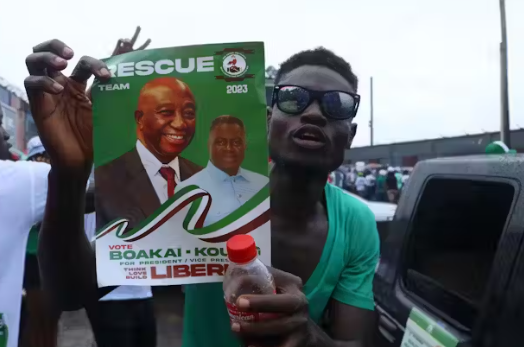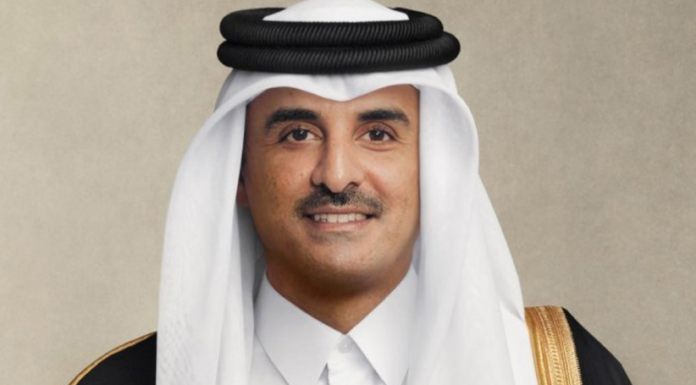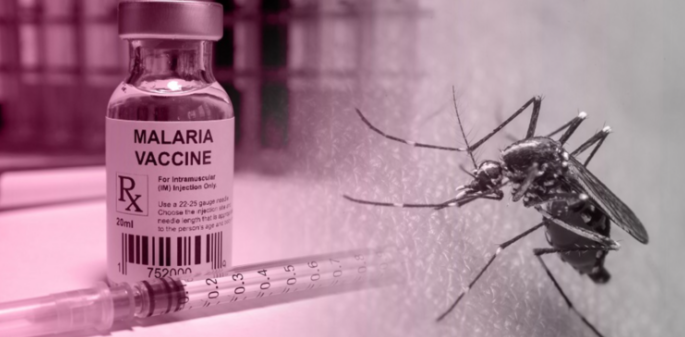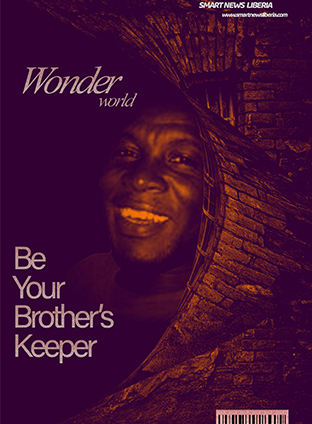Associate Professor of Peace, Politics, and Conflict Studies, Babes Bolyai University
Joseph Boakai was sworn in as Liberia’s 26th president on 22 January 2024. Boakai secured a six-year term of office after defeating incumbent president George Weah in a keenly contested November 2023 poll with 50.9% of the votes cast.
The West African country of 5 million people reached a major milestone on 17 November 2023, when Weah, of the Congress for Democratic Change, conceded defeat to the Unity Party candidate.
Weah scored 49.1% of votes cast and lost the tight presidential run-off, which the EU described as “remarkably close and well administered”.
Liberia has enjoyed 20 years of peace and relative stability since the end of a civil war that killed over 250,000 people and displaced Liberians across the world.
During this time, the country has made gradual but significant progress in restoring the rule of law, securing civil liberties and strengthening state and human capacity.
One of the breakthrough moments came in 2018. That year the country saw peaceful power transfer from one democratically elected president to the other. This was the first of its kind since 1944.
At a time when there have been six successful and two attempted coups in west Africa since 2020, Liberia’s transition towards a more stable state appears to be focused on security reforms and respect for election results.
My research focuses on the patterns of post-war reconstruction efforts in sub-Saharan Africa and how states in the region respond to crises, conflict and statehood.
During my fieldwork in Liberia, I identified three factors that have kept the country on the path to peace: military neutrality in domestic politics; war fatigue; and a national drive towards reconciliation.
Military neutrality in domestic politics
Liberia, like many African nations, has experienced two eras of military dictatorships. One was under Samuel Doe, Liberia’s unelected president, and the other under Charles Taylor, Liberia’s 22nd president and leader of one of its main rebel groups.
Both men held a tight grip over the country. They used the military to drive their political objectives.
During their rule, army officers served as ministers, judges, administrators and members of parliament. They suppressed all forms of resistance and opposition.
The army’s involvement in Liberia’s sociopolitical and diplomatic affairs undermined the country’s development and eroded its progress. It crippled the economy and sent the nation into a brutal war that lasted 14 years.
The role of the military in domestic politics, however, ended with the fall of Taylor’s government in August 2003. Since then, the Armed Forces of Liberia has enjoyed independence from the office of the president. It has carried out reforms within its institutions of governance and has committed itself to protecting the constitution and the flag of Liberia.
The transition from military dictatorship to civilian rule has enabled Liberia to move towards a stable state. It can hold free and fair elections, and citizens can participate in governance.
War fatigue
The Liberian civil war, which lasted from 1989 to 2003, had a profound impact. It destroyed over 70% of the country’s physical infrastructure and collapsed nearly all of its vital institutions.
The conflict claimed over 250,000 lives, displaced more than one million people, and broke down social and community ties. The horrors brought by the war had a chilling effect on the civilian population.
The peace Liberia enjoys today came at a high cost. Survivors of the war still suffer emotional and psychological exhaustion that manifests in various ways.
The diverse effects of the war left a stain on Liberia’s economy and undermined its pre-war progress. Poverty and the scars of war are still visible.
But beyond the difficulties lies the resilience of the government and its people to rebuild, determined not to resort to violence to settle differences.
Liberia’s post-war elite no longer see their ethnic or religious identities as sources of conflict but rather as the basis of strength for national prosperity.
Unity, combined with the intervention of Liberia’s international partners, has so far made it difficult for individuals to undermine its democracy.
Reconciliation
Liberia has made progress in promoting reconciliation, inter-tribal dialogue and transitional justice since the war ended. This has played a role in preventing a relapse into conflict, facilitating healing and fostering unity.
A Truth and Reconciliation Commission was established in 2005 to document the atrocities and violations committed during the war, identify key perpetrators, and make recommendations for healing and reconciliation.
The commission’s report, published in 2009, recommended reparations, reforms and prosecution of wrongdoers.
Initiatives such as psychological support, vocational education and ritual purifications aimed at reintegrating ex-combatants into society have played roles in maintaining the peace.
Equally important is the role of truth-telling in Liberia’s recovery journey. Warlords like “General Butt Naked”, who voluntarily confessed their atrocities, and went from community to community to apologise for their crimes, received forgiveness from victims (or surviving relatives of victims) and immunity from prosecution.
Community-based engagement and activities aimed at addressing grievances at the grassroots level have also contributed to restoring trust and social cohesion among Liberians.
The need for reconciliation was echoed in Weah’s concession speech:
Tonight, the CDC has lost the election, but Liberia has won. This is a time for graciousness in defeat. Let us heal the divisions caused by the campaign and come together as one united people.
What in the election’s outcome could threaten the peace?
But there are still dangers, in particular the strength of warlords within its political space.
Since 2006, warlords and war profiteers have played key roles in choosing the country’s presidents. The relationship enables warlords to trade political support for protection, while presidential candidates exchange justice for votes.
This could endanger the country’s security. Liberia must hold individuals accountable for war crimes, address the root causes of the conflict, and provide reparation to victims.
If Liberia is to achieve sustainable peace, it must carefully consider the connection between its post-war elites and former warlords. Source: theconversation.com







